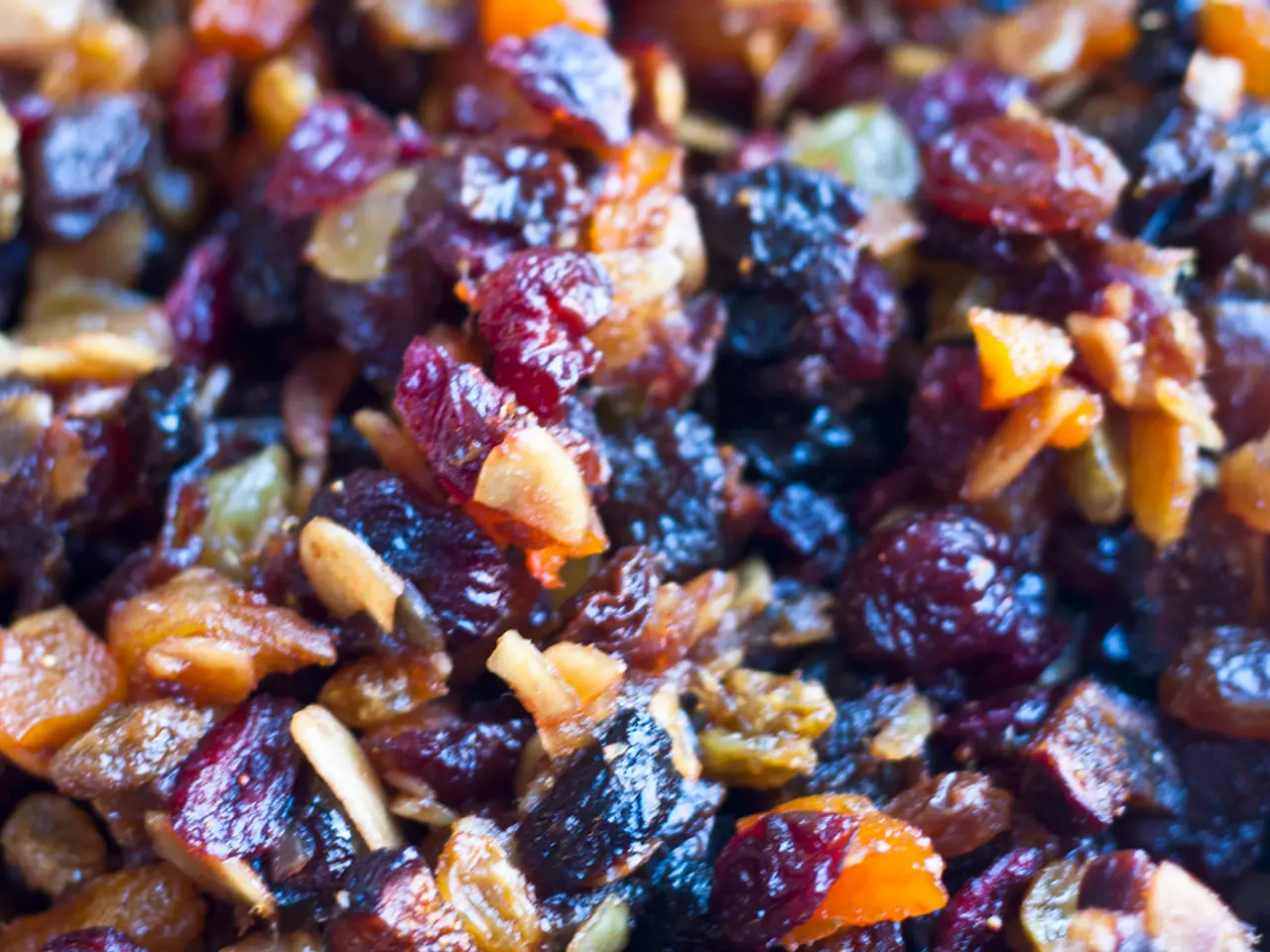Foods Rich in Arginine: Origins, Advantages, and Potential Hazards
In recent years, arginine, an amino acid found in various food sources and a building block of protein, has gained attention for its potential health benefits. This article explores the potential advantages and potential risks associated with increasing arginine intake.
### Potential Benefits of Increasing Arginine Intake
Arginine plays a crucial role in the body, particularly in the production of nitric oxide, which is essential for relaxing and widening blood vessels (vasodilation). This mechanism helps improve blood circulation, which can benefit conditions like high blood pressure and erectile dysfunction. Additionally, arginine may improve exercise performance by increasing oxygen delivery to muscles, potentially increasing VO₂ max (a measure of aerobic capacity) and prolonging exercise time to exhaustion.
Arginine is also believed to contribute to fatigue reduction during exercise by helping remove ammonia, a byproduct that may contribute to fatigue during intense exercise. Furthermore, some evidence suggests that low doses of arginine may modestly improve lipid profiles and support heart health, although these effects are better established in some contexts than others. Lastly, improved blood flow from arginine intake could potentially enhance libido.
### Potential Risks and Side Effects
While arginine offers several potential benefits, it's important to be aware of the potential risks and side effects, particularly at higher doses. Taking more than about 10 grams of arginine at once can cause nausea, vomiting, diarrhea, and other gastrointestinal issues. Up to 20-30 grams per day, spaced throughout the day, may be tolerated but require caution.
High doses of arginine (particularly in diabetic subjects) have been linked in animal studies to increased myocardial injury through oxidative stress and inflammation. This suggests that high or uncontrolled arginine supplementation might exacerbate heart damage in vulnerable groups, such as those with diabetes.
It's also worth noting that the long-term safety data for arginine supplementation is still insufficient, and upper intake levels have only been tentatively set.
### Practical Advice
When considering arginine supplementation, it's essential to consult a healthcare provider, particularly for those with diabetes or cardiovascular issues. Typical supplemental arginine doses range from 3 to 6 grams pre-workout. To avoid gastrointestinal side effects, doses above 10 grams at one time are discouraged. Instead, divided doses totaling 15-18 grams/day may be tolerated.
Citrulline is often preferred for sustained arginine elevation with fewer side effects. It's also important to note that absorbing more arginine may indirectly cause cold sores by disrupting the body's balance of arginine and lysine.
### Food Sources of Arginine
Arginine can be found in a variety of food sources, including dairy, fish, poultry, and other meats. A turkey breast provides a high amount of arginine, as do soybeans, raw peanuts, chickpeas, and some types of seaweed. Nuts and seeds are significant sources of arginine, with pumpkin seeds, watermelon seeds, sesame seeds, walnuts, almonds, and pine nuts all being good sources.
### Conclusion
Moderate arginine intake via food or supplements can be beneficial for cardiovascular health and exercise performance primarily through nitric oxide-mediated vasodilation. However, high doses pose gastrointestinal and potentially cardiovascular risks, especially in susceptible populations, and long-term safety remains incompletely understood. It's always best to consult a healthcare provider before making significant changes to one's diet or supplement regimen.
- Arginine, a vital amino acid, is crucial for the production of nitric oxide, which helps relax and widen blood vessels, potentially benefiting conditions like high blood pressure and erectile dysfunction.
- In addition, arginine may improve exercise performance by increasing oxygen delivery to muscles, potentially increasing VO₂ max and prolonging exercise time to exhaustion.
- Some evidence suggests that low doses of arginine may modestly improve lipid profiles and support heart health, although these effects are better established in certain contexts.
- Improved blood flow from arginine intake could potentially enhance libido.
- However, high doses of arginine can cause gastrointestinal issues, including nausea, vomiting, and diarrhea.
- Long-term safety data for arginine supplementation is still insufficient, and it's important to consult a healthcare provider, especially for those with diabetes or cardiovascular issues.
- A variety of food sources contain arginine, such as dairy, fish, poultry, and nuts like pumpkin seeds, watermelon seeds, sesame seeds, walnuts, almonds, and pine nuts.




